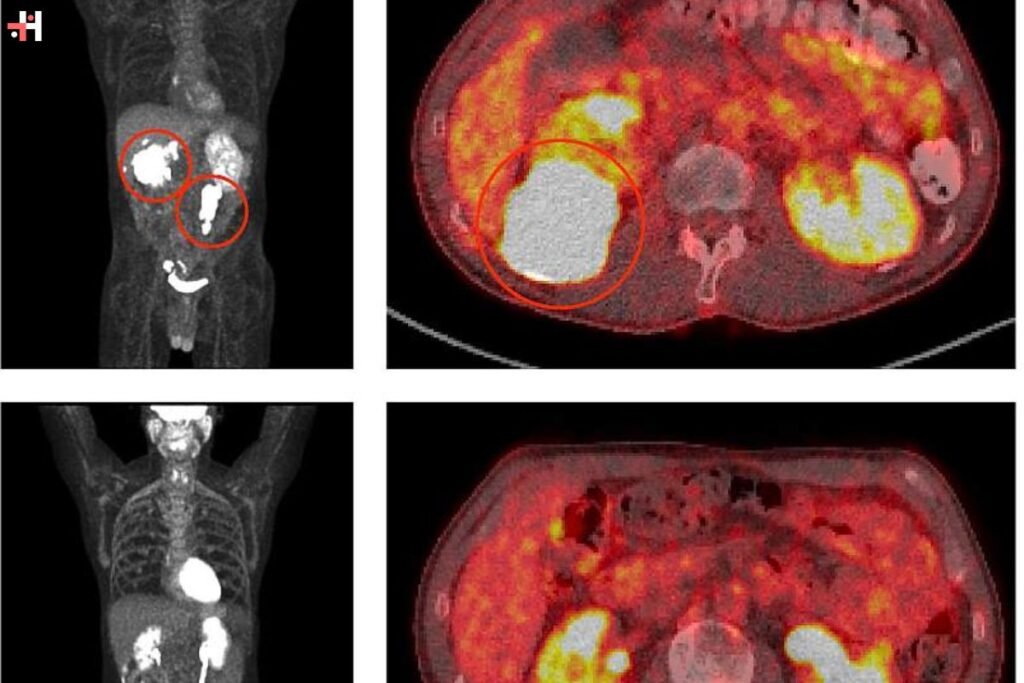(Source-National-Institutes-of-Health-NIH)
In a significant development for the field of oncology, researchers have reported promising results from a novel combination treatment aimed at tackling aggressive B-cell lymphoma. This type of cancer, known for its resistance to conventional therapies, has posed a formidable challenge in clinical settings. However, a new approach combining targeted therapies has shown remarkable efficacy in inducing lasting remissions among patients who previously had limited treatment options.
The treatment regimen, developed through collaborative efforts between leading medical institutions, focuses on leveraging the strengths of multiple drugs to target specific pathways critical to cancer cell survival. Unlike traditional chemotherapy, which often has broad effects on both healthy and cancerous cells, these targeted therapies aim to selectively disrupt cancer cell mechanisms while minimizing damage to normal tissues. This precision approach not only enhances treatment efficacy but also reduces the likelihood of severe side effects commonly associated with conventional treatments.
Clinical Success and Patient Outcomes
Recent clinical trials have provided compelling evidence of the treatment’s effectiveness. Patients diagnosed with resistant aggressive B-cell lymphoma, who participated in the trials, demonstrated significant improvements in their condition. Many achieved complete remission, where no signs of cancer were detectable after treatment. Importantly, a notable proportion of these patients have sustained these remissions over an extended period, marking a crucial advancement in managing this challenging form of cancer.
Dr. Emily Chen, a lead investigator in the trials, expressed optimism about the outcomes, stating, “We are encouraged by the durable responses we have observed in patients who have exhausted standard treatment options. This approach represents a promising step forward in our ability to provide meaningful long-term outcomes for individuals facing aggressive B-cell lymphoma.”
The success of this targeted treatment is underpinned by its ability to address the specific genetic and molecular characteristics of each patient’s cancer. By tailoring the therapeutic approach to the unique profile of the disease, clinicians can optimize treatment strategies and improve overall prognosis. Moreover, ongoing research continues to refine these therapies, aiming to expand their applicability and efficacy across different subtypes of B-cell lymphoma.
Future Directions and Implications about B-cell lymphoma
Looking ahead, the findings from these trials hold significant implications for the future of cancer treatment. The success of targeted therapies in achieving durable remissions underscores the potential of personalized medicine approaches in oncology. As researchers uncover more about the molecular underpinnings of various cancers, the development of tailored treatments is expected to become increasingly common.
Dr. Michael Rodriguez, a hematologist involved in the research, emphasized the broader implications, stating, “These results pave the way for a paradigm shift in how we approach aggressive lymphomas. By harnessing the power of targeted therapies, we can potentially transform outcomes for patients who previously faced limited treatment options.”
The next phase of research will focus on further refining the treatment regimen, exploring combination therapies, and identifying biomarkers that can predict patient response. This concerted effort aims to optimize treatment protocols and expand access to these innovative therapies for a broader population of patients.
In conclusion, the emergence of targeted combination therapies represents a pivotal advancement in the fight against aggressive B-cell lymphoma. By achieving lasting remissions and minimizing treatment-related side effects, these therapies offer renewed hope for patients and clinicians alike. As ongoing research continues to unravel the complexities of cancer biology, the prospect of personalized treatments tailored to individual patients’ needs appears increasingly promising.









